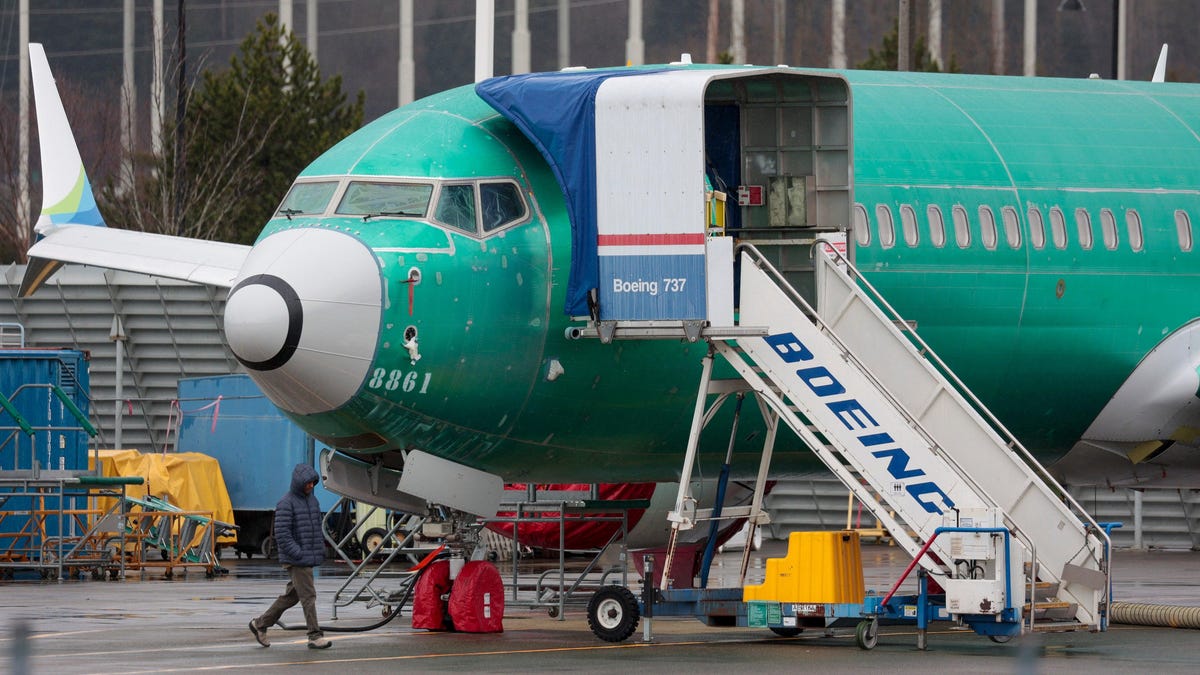Just when you thought it couldn’t get any worse for the Boeing 737 Max, a new problem has been found in production. Now, Boeing has to rework 50 undelivered jets before they can take to the sky. Good lord.
It started with a memo from Stan Deal (cool name), an employee at Spirit AeroSystems, a Boeing supplier that makes the fuselage of the 737 Max, who notified the company that two holes might not have been drilled “exactly to Boeing’s requirements,” according to CNN. I’m no plane expert, but that doesn’t sound like an ideal situation for something that’ll eventually be about 37,000 feet in the air.
Luckily for the flying public, CNN reports that the issue won’t immediately impact flight safety:
“While this potential condition is not an immediate flight safety issue and all 737’s can continue operating safely, we currently believe we will have to perform rework on about 50 undelivered airplanes,” it said.
[…]
Deal’s Sunday memo said Boeing’s 737 Max factory in Renton, Washington would “dedicate several days … this week to focus on this important work, reflecting the premium we place on quality, safety and, ultimately, stability in our factories.”
It’s been a real rough go of it for Boeing lately – especially when it comes to the 737 Max. The latest saga started on January 5 when a door plug blew out on an Alaska Airlines flight, leaving a big ass hole in the side of the plane. Right now, the exact reason for the incident is unknown, but Boeing’s CEO reportedly told investors “We caused the problem.”
“Whatever conclusions are reached, Boeing is accountable for what happened. Whatever the specific cause of the accident might turn out to be, an event like this simply must not happen on an airplane that leaves one of our factories,” David Calhoun, Boeing CEO, reportedly told investors. “We simply must be better.”
CNN laid out some of Boeing’s quality control problems and how they relate to an increased reliance on suppliers:
In a cost-cutting move, Boeing has been increasingly depending on suppliers in recent years to assemble key parts of its aircraft. Spirit AeroSystems, for example, builds its fuselages and in some cases its cockpits, leaving Boeing with only final assembly of the planes that carry its name.
But this is not the only supplier delivering products to Boeing that does not meet its standards, according to Deal. He also acknowledged there are problems with planes at Boeing’s own production facilities.
During a recent day on which Boeing halted production of the 737 Max to hold a staff meeting to stress the importance of quality control, “many employees voiced frustration with … how unfinished jobs – either from our suppliers or within our factories – can ripple through the production line,” Deal wrote in the memo.
“These employees are absolutely right. We need to perform jobs at their assigned position,” he said. “We have to maintain this discipline within our four walls and we are going to hold our suppliers to the same standard.”
“We recently instructed a major supplier to hold shipments until all jobs have been completed to specification,” he said. “While this delay in shipment will affect our production schedule, it will improve overall quality and stability.”
It remains to be seen how this latest delay will impact 737 Max customers. Last month, United and Southwest said they were no longer counting on getting the Max planes they were promoted by Boeing, according to CNN.

